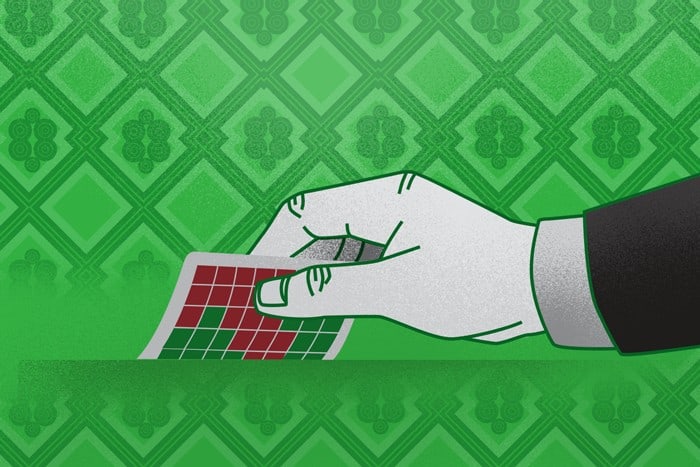The Five Greatest Poker Players of All Time
Arguments over who the greatest poker players of all time are will rage on as long as there are such things as cards, chips, and a dealer button.
Arguments over who the greatest poker players of all time are will rage on as long as there are such things as cards, chips, and a dealer button.
The main reason why there is so much contention on this topic is that the criteria that determine greatness differs from person to person. A player’s ability to read an opponent, their capacity to remain calm under pressure, their ability to manipulate their opponents, and many other skills, are all intangible factors that can be difficult to interpret and express objectively.
The other method of assessing a player’s greatness is to take the slightly more binary route of simply looking at the amount of money they have won. Yes, this damages the romance of the task somewhat and certainly does skew the results towards players of the modern era where the money up for grabs eclipses what was on offer back before Rounders came out, but it remains a valid criterion.
Then there is also the matter of legacy. Some poker players’ contribution to the game away from the table is so immense that matters like their earnings can be pushed aside when assessing their greatness. This too is a variable that is tough to measure but is as relevant as any other.
So here we go, taking both the tangible and intangible into consideration, here is Poker Copilot’s list of the six best poker players of all time.
Some notes before we continue:
- All earnings and ranking statistics are obtained from the Global Poker Index.
- The term WSOP refers to the World Series of Poker, which is a series of poker events held annually and is regarded as the premier competition on the global poker calendar.
- A “WSOP Bracelet” is a prize awarded to a winner of one each WSOP’s several events. It’s the most coveted non-monetary prize in poker.
Stu (The Kid) Ungar
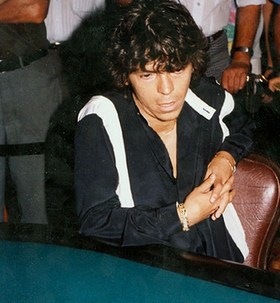
(Source: Nolandalla.com)
All Time Money List Current Rank: 307th
Best Live Cash: $1,000,000 ($ 10,000 No Limit Hold’em World Championship – WSOP 1997)
WSOP Bracelets: 5
WSOP Money Finishes: 15
Total Live Earnings: $3,675,321
Despite his relatively short career – Ungar passed away at the age of 45 – The Kid is as recognizable a figure in the poker community as any of his contemporaries.
A prodigy in the truest sense of the term, Ungar’s first WSOP win came in what he later claimed was his very first Texas hold’em tournament. Poker legend Doyle Brunson commented after the event that he had never seen a player improve during a tournament.
The following year, Ungar defended his title, earning him immense celebrity and laying the platform for fifteen years of debauchery, cocaine addiction, and numerous bankruptcies.
His finest moment came in 1997 when he won $1m in the WSOP main event after managing to borrow the $10k buy-in with seconds left in the registration period.
Ungar’s remarkable success is attributed to a confident, unpredictable, hyper-aggressive style that was decades before its time. As soon as he managed to become chip leader, he dominated the table, with players accustomed to playing the tight, aggressive style that was popular at the time totally outgunned by his enigmatic genius.
Phil Ivey
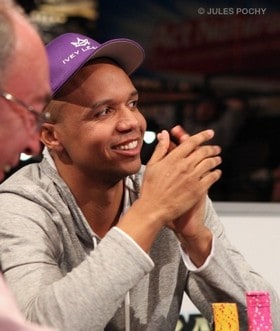
(Source: Thehendonmob)
All Time Money List Current Rank: 8th
Best Live Cash: $3,582,753 (2014 Aussie Millions Poker Championship, Melbourne)
WSOP Bracelets: 10
WSOP Money Finishes: 55
Total Live Earnings: $23,856,033
Arguably the most respected player of his generation, Phil Ivey is the personification of professionalism. Having achieved enormous success at a young age, the New Jersey native has amassed legions of loyal fans across the world and has for several years been regarded by a large group of his peers as the best all-round player in the world.
Ivey’s interest in poker began when his grandfather taught him Five Card Stud at the age of eight. Throughout his teenage years, he continued to participate in casual tournaments organized by friends and acquaintances but soon grew tired of the lack of a challenge.
By the age of 16, Ivey invested in a fake ID and started playing regularly in Atlantic City, where he embarked on his journey to becoming a professional player.
His initial difficulties are well-documented, with a period of poor luck and bad decisions being the defining factors of his entry into the arena of the professionals. To his credit though, Ivey refused to give up and was soon established as one of the top players in the Atlantic City circuit, despite his tender years.
A move to Las Vegas was inevitable, and it was through his friendship with Barry Greenstein that Ivey was invited to the Big Game at the Bellagio where his skills were soon evident.
His tally of 10 WSOP bracelets ties him at second place and he is currently the youngest ever player to have his total amount of bracelets in double figures – having achieved this feat at the age of 38 (stealing this record from Phil Hellmuth who had won his 10th at age 42).
Ivey won the hearts of several poker enthusiasts when it was revealed that he insisted on settling a large debt he owed Chip Reese, despite his creditor passing away in 2007.
Doyle Brunson
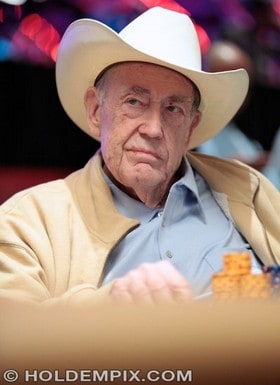
(Source: Thehendonmob)
All Time Money List Current Rank: 147th
Best Live Cash: $1,198,260 ($ 5,000 NLHE Championship Final Day – WPT 2004 – Legends of Poker)
WSOP Bracelets: 10
WSOP Money Finishes: 36
Total Live Earnings: $6,131,775
The grandfather of Texas Hold’em, this list couldn’t be complete without Doyle Brunson, a man who simply defines the term “poker legend”.
His remarkable reputation is earned not only through his skill, which is significant despite his comparatively modest earnings, but through the longevity of his career, his relationship with other players, pleasant demeanor, and willingness to teach the younger generation.
Since his career has spanned over 50 years, he represents a generation of players who participated in the game before players were multi-millionaire celebrities and even during a period where the only games you could win a sizeable amount of money at were organized by local gangsters. In fact, the former school headmaster has admitted to having a gun pulled on him on numerous occasions during the early days of his career.
It’s impossible to think what the game of Texas Hold’em would be without Brunson’s most notable achievement away from the tables: his book “Super/System”, which did more to popularize the game upon being published than any other book before. In it, Brunson selflessly drew back the curtains on the thought processes that drive the successful poker player’s decisions, causing shockwaves through the industry, and earning the big Texan an army of admirers.
Despite his age, Brunson is still a fixture in the live poker circuit and is tied with Johnny Chan and Phil Ivey for the second-most WSOP bracelets.
Daniel Negreanu

(Source: Thehendonmob)
All Time Money List Current Rank: 1st
Best Live Cash: $8,288,001 ($1,000,000 NLHE – The Big One for One Drop – WSOP 2014)
WSOP Bracelets: 6
WSOP Money Finishes: 103
Total Live Earnings: $36,546,094
As a 16-year old, Daniel “Kid Poker” Negreanu threw himself into his pursuit of becoming a professional snooker player, frequenting Toronto’s bars and rubbing shoulders with the kind of influences that saw him lured into the world of gambling.
Fortunately for the teenage son of Romanian immigrants, Negreanu showed not only a phenomenal capacity for understanding the nuances of poker but also the maturity not to lose himself in a potentially unsavory scene despite dropping out of high school to dedicate himself entirely to poker.
Until the age of 22, Negreanu sought illegal games in the greater Toronto area and eventually decided to move to Las Vegas where he could chase his childhood dream of becoming wealthy. Things did not go according to plan, however, and the bankrupt Negreanu returned home less than half a year after making the move.
His return to Vegas saw him usher in the most lucrative poker streak in the history of the game. Early success at the 1998 WSOP, winning $169,460 at the $2,000 Pot Limit Hold’em event and becoming the youngest-ever bracelet winner in the process (a title he held for seven years), laid the foundation for unprecedented financial success.
He became an inspiration to many in 2001 when he made some very public lifestyle changes that allowed him to become even more focused on winning, admitting to a drinking problem and financial mismanagement.
A list of his tournament winnings reads like a poker player’s wildest dream, having cashed for over $1m in six separate events (one being for a total of $8m when he won second place in the 2014 WSOP’s The Big One for One Drop tournament).
Regularly referred to as one of the friendliest and most pleasant players to have at your table, Negreanu is a beloved figure in the poker world and idolized by thousands of fans and peers.
Chip Reese
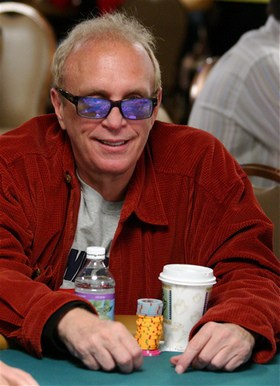
(Source: Thehendonmob)
All Time Money List Current Rank: 265th
Best Live Cash: $1,784,640 ($ 50,000 H.O.R.S.E. – WSOP 2006)
WSOP Bracelets: 3
WSOP Money Finishes: 23
Total Live Earnings: $3,986,080
David “Chip” Reese’s introduction into the world of poker is the stuff that myths are made of. In 1974, Reese was on his way to Stanford University to study law and opted to spend his summer in Las Vegas before the start of his first semester.
Already an accomplished poker player, having schooled both classmates and professors at Dartmouth where he did his undergraduate degree in economics, the 23-year old amassed winnings totaling $100,000 by the time he was to start attending classes in California.
Unsurprisingly, this was enough motivation for the youngster to postpone his studies indefinitely – a decision that the world of poker is all the richer for.
Over the next decade, Reese established himself as the undisputed master of Seven-Card Stud and earned such a reputation that Doyle Brunson asked him to contribute a chapter in his seminal poker book “Super/System.”
Reese’s poker career took the back seat to his job as the cardroom manager at the Bellagio – a vocation that allowed him to spend more time with his family, to whom he was extremely devoted.
It was only at the urging of his children that Reese took up tournament play again in 2004 as they wanted to see their father compete on television. In the three years that followed, Reese achieved phenomenal success in both the WSOP and the WPT, regularly outplaying established and rising poker luminaries.
His playing style was typified by his affability, gentleness, calmness under pressure, and his ability to manage his emotions. To this day, none of his opponents could ever claim to have seen him succumb to tilt.
Reese passed away in his sleep in 2007, his death officially attributed to the effects of pneumonia. Upon hearing the news of his friend’s death, poker legend Doyle Brunson is quoted as saying: “He’s certainly the best poker player that ever lived,” a statement that few would disagree with.
